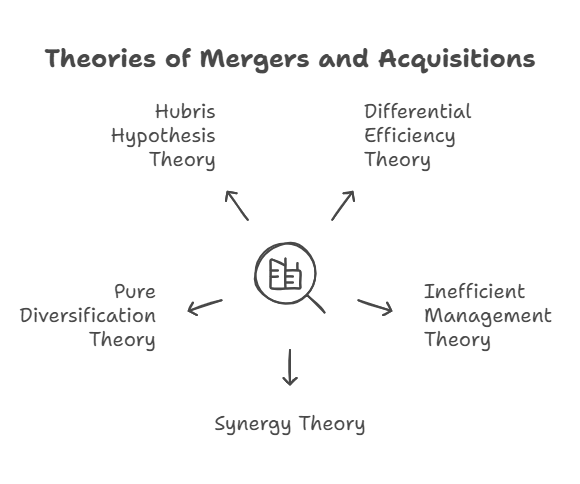Theories of M&A
Theories of Mergers and Acquisitions
-
Differential Efficiency Theory: This theory posits that acquisitions happen when a more efficiently managed firm (A) acquires a less efficient firm (B). The idea is that A's superior management practices will improve B's performance, leading to increased overall efficiency. Inefficient firms become targets for more capable ones.
-
Inefficient Management Theory: Similar to the differential efficiency theory, this focuses specifically on management inefficiency. It suggests that poorly managed companies are prime targets for acquisition. The acquirer believes it can unlock greater value by replacing the existing management team.
-
Synergy Theory: Synergy is the core concept where the combined value of two firms is greater than the sum of their individual values ("2+2=5"). This can arise from:
- Operational Synergy: Combining operations, eliminating redundancies, and achieving economies of scale.
- Financial Synergy: Access to cheaper capital, improved cash flow, and tax advantages.
-
Pure Diversification Theory: This theory suggests that companies pursue mergers to diversify their operations. Diversification can reduce risk and open up new markets. Acquiring another company can be a faster route to diversification than internal growth.
-
Hubris Hypothesis Theory: This theory argues that managers sometimes pursue acquisitions for personal reasons (e.g., increased power, prestige) rather than purely financial ones. This is especially true in competitive takeover situations. The "winner's curse" describes how the winning bidder in an auction often overpays due to inflated valuations driven by the desire to win, a form of hubris.


No Comments